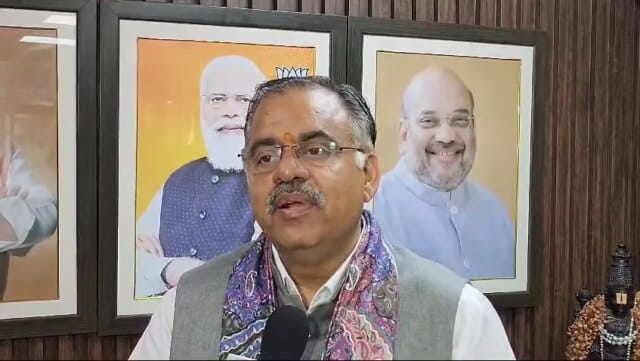Ludhiana, Jun 27: BJP National General Secretary Tarun Chugh, addressing a district-level seminar in Ludhiana to mark 50 years since the imposition of Emergency, launched an attack on the Congress party and the Aam Aadmi Party (AAP), accusing both of undermining democracy and institutions for political gain.
Chugh described the Emergency declared in 1975 by then Prime Minister Indira Gandhi as an act driven by political insecurity rather than national interest. He accused her of misusing Article 352 to subvert constitutional norms, turning India’s democracy into a personal dictatorship.
Chugh highlighted the clampdown on press freedom, suspension of civil liberties, and the arrest of opposition leaders without trial as hallmarks of that period. He alleged that Sanjay Gandhi, despite holding no constitutional office, wielded significant power during the Emergency, and that over one lakh people were imprisoned under the Maintenance of Internal Security Act (MISA), with jailed leaders denied even basic human rights.
Chugh argued that the Congress party has not reformed since then, accusing it of continuing to suppress dissent, target journalists, and brand criticism as anti-national. He also criticised the party for inserting ideological terms like “secular” and “socialist” into the Constitution for political motives and accused it of promoting dynastic politics. The continued centrality of the Nehru-Gandhi family in opposition politics, he said, reflects the party’s unchanged mindset.
Drawing a parallel with the AAP government in Punjab, Chugh claimed that the state is effectively being run not from Chandigarh but from Delhi, with real control resting with AAP leader Arvind Kejriwal and his inner circle. Chugh described AAP and Congress as fundamentally alike, both allegedly guilty of misgovernance, corruption, and betrayal of democratic principles. He asserted that the people of Punjab are growing disillusioned with both parties and will soon reject their brand of politics in favour of a more accountable leadership.








